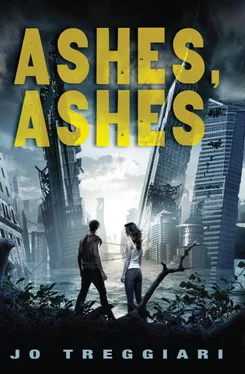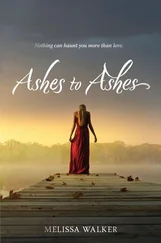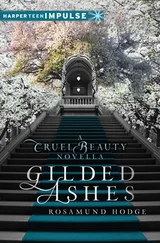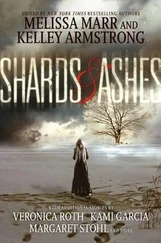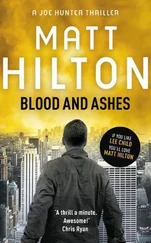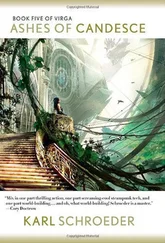Jo Treggiari
ASHES, ASHES
FOR BETTY FRANKLIN,
SUSAN TREGGIARI,
AND MY FEARLESS, INTREPID LUCY PARRIS
Ring around the roses
A pocketful of posies
Ashes, ashes
We all fall down.
Lucy hunched over the corpse and felt a tiny bubble of hysterical laughter gurgle up. But as she stared at the lifeless turtle stretched out on the rough plank, the laughter died abruptly. The tang of fresh blood was unpleasant. She should have butchered it outside, by the shore, but the hour was getting late and she’d felt exposed on the sand. Besides, she had never actually done a turtle before, never noticed how the wizened face and papery eyelids made it look like a very old person.
She positioned the knife edge along the thinnest section of gray, wrinkled neck and pushed down, fixing her gaze steadily in front of her. The knife stuck. She tried to stop her brain from screaming thoughts of sinew and bone, and leaned her weight on her hand. The flesh resisted, then suddenly gave way. The knife slammed into the hard wood underneath, and the head rolled off onto the ground with an audible thump .
Her stomach heaved. Fortunately, it was empty. Lucy put her knife down and dragged the woven screen away from the entry hole to her shelter, letting a breeze sweep in and clear the stench from her nose.
She closed her eyes and breathed in deeply, sinking to her knees. She could smell the scent of impending rain. She wondered whether she could survive it for another year. Two days of steady rain had already turned the ground outside her camp into a series of muddy pools threaded by soggy grassland, and since her shelter lay in a hollow, there was now what amounted to a narrow moat right outside the front entrance.
The floods had first come about five years ago, when she was eleven years old. Melting polar caps; rising sea levels; increased rainfall; a steady battering of hurricanes, tornadoes, and earthquakes weakening the land: everything the scientists had warned them about. And the world mapped in her geography books had changed with a frightening rapidity; continents shifting shape, coastlines altered. San Francisco, Los Angeles, Venice, Thailand, Spain, her beloved Coney Island, Japan, had all but vanished beneath the waves. Australia was half the size it had been, shrinking like an ice cube in a warm drink, and New York City had become a clump of six or seven scattered islands connected to the mainland by a few big bridges—the Geo Wash, the RFK, the Will Burg. Some were only accessible during the Long Dry.
Small but fast-moving canals flowed over the same routes as the old roads. Lexington Avenue, Fifth Avenue, 42nd Street, were all underwater now. But people had rallied and rebuilt. They’d stretched suspension bridges strong enough to hold a dozen people and a few bicycles at a time across the swollen canals that now ran in a crisscrossing grid over what had been Manhattan. Thousands of sandbags shored up the dikes along the smaller waterways, and a massive wall of masonry and detonated high-rises had been built in an attempt to keep the inland sea back from the edges of Harlem and Washington Heights. Cheap plywood houses sprang up on stilts, altering the cityscape. Deep, wide gutters were cut into the ground, and cars were banned from the city, except on the outskirts and the few roads that had survived the earthquakes.
They’d called it “New Venice” jokingly, and it had seemed okay then. Lucy, living in the solidity of northern New Jersey, miles away from the shores of the sea, had felt safe, and she’d kept on taking the train into the city or hitching, kept on cruising the vintage stores for cool clothes. It rained frequently, making whole neighborhoods inaccessible for months out of the year, and the summers were more sweltering than ever, but the streets were still packed with people buying and selling or just hanging out. And then, as if all that had been just a dress rehearsal for some disaster movie, four years later the plague had arrived.
She could almost hear the newspeople again, like something out of one of those cheesy old sci-fi television shows: the warnings to stay inside; the rising panic; the video of gaunt, red-eyed survivors, their skin seemingly charred; the doomsayers with their sandwich boards, black robes, and crazy talk about disease-carrying birds and God’s wrath. Seeing anchor-women, who normally looked like airbrushed mannequins, seriously freaking out was scary. Lucy still had nightmares. She still woke up certain that her skin was covered in scabs and she was bleeding to death from the inside out.
Instead of globe-eyed aliens or a gigantic meteorite headed straight for Earth, it was the resurgence of a killer disease that had reduced the global population to less than 1 percent of what it had been within three short months. Eating healthy, exercising, living in a big house, driving a fancy car—none of that mattered at all. The pox took almost everybody, and it seemed that people between the ages of thirty and sixty died faster and harder than anyone.
And who would have guessed that Lucy would have turned out to be luckier than her entire family?
Lucy “Lucky” Holloway. She used to hate her nickname, but now—now it was different.
It was weird to think that her younger brother, Rob, had started calling her that as a joke. He’d also nicknamed the dog, Rex, “Tex Mex” after it had been discovered that the golden retriever could scarf down a dozen frozen burritos without vomiting, and he’d renamed their older sister, Susan, “Maggie” (short for “Maggot”) because she liked to eat rice pudding while bundled up on the couch in an old blanket.
Maybe Lucy had gotten off easy. Lucky instead of Lucy wasn’t too bad, and most people didn’t realize it was meant sarcastically because of her ability to trip over her own two feet, break dishes, and knock books off of shelves merely by walking past them. As a preteen, she’d managed to run through the glass French doors that led into the kitchen from the pool, not once, but twice, necessitating visits to the emergency room and eleven stitches in her calf the first time and then, six under her chin.
She knew her clumsiness annoyed her parents. She’d always felt as if she were a changeling dumped into their magazine-perfect midst. She didn’t even look like them, having inherited some recessive gene from an ancient Welsh ancestor. She was slim and gray-eyed, with wildly curly black hair—shocking compared to their pink and blond athletic good looks. She was awkward and she was ugly. And worse than that, she wasn’t a superjock like her brother or a brainiac like her sister. She was something her happy-homemaker mom and her big-lawyer dad just couldn’t understand: good at nothing in particular.
In her journal she’d written long, angry, tearful diatribes about feeling out of step and alone at home and at school, where the cliques were ruled by people just like her brother and sister, until she’d convinced herself she didn’t care, forced herself to tune out when Rob’s latest game score or Maggie’s newest scholarship was being discussed over the dinner table. At least she hadn’t been nicknamed after something that pulsed and wriggled on rotten food.
Poor Maggie. Gone, and her old blanket gone, too, burned in a useless attempt to get rid of the sickness. Together with the quilts Grandma Ferris had painstakingly pieced together and Lucy’s threadbare teddy bear and the embroidered sofa cushions and everything else it seemed had made life soft and comfortable.
Читать дальше
